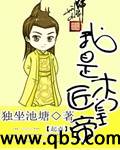LETTER 190
您可以在百度里搜索“The Works of Charles and Mary Lamb — Volume 5 艾草文学(www.321553.xyz)”查找最新章节!
LETTER 190
CHARLES LAMB TO WILLIAM WORDSWORTH
Friday, 19 Oct., 1810. E.I.Ho.
Dr W.—I forwarded the Letter which you sent to me, without opening it, to your Sister at Binfield. She has returned it to me, and begs me to tell you that she intends returning from B. on Monday or Tuesday next, when Priscilla leaves it, and that it was her earnest wish to spend another week with us in London, but she awaits another Letter from home to determine her. I can only say that she appeared so much pleased with London, and that she is so little likely to see it again for a long time, that if you can spare her, it will be almost a pity not. But doubtless she will have heard again from you, before I can get a reply to this Letter & what she next hears she says will be decisive. If wanted, she will set out immediately from London. Mary has been very ill which you have heard I suppose from the Montagues. She is very weak and low spirited now. I was much pleased with your continuation of the Essay on Epitaphs. It is the only sensible thing which has been written on that subject & it goes to the Bottom. In particular I was pleased with your Translation of that Turgid Epitaph into the plain feeling under it. It is perfectly a Test. But what is the reason we have so few good Epitaphs after all?
A very striking instance of your position might be found in the Church yard of Ditton upon Thames, if you know such a place. Ditton upon Thames has been blessed by the residence of a Poet, who for Love or Money, I do not well know which, has dignified every grave stone for the last few years with bran new verses, all different, and all ingenious, with the Author's name at the Bottom of each. The sweet Swan of Thames has artfully diversified his strains & his rhymes, that the same thought never occurs twice. More justly perhaps, as no thought ever occurs at all, there was a physical impossibility that the same thought should recur. It is long since I saw and read these inscriptions, but I remember the impression was of a smug Usher at his desk, in the intervals of instruction levelling his pen. Of Death as it consists of dust and worms and mourners and uncertainty he had never thought, but the word death he had often seen separate & conjunct with other words, till he had learned to skill of all its attributes as glibly as Unitarian Belsham will discuss you the attributes of the word God, in a Pulpit, and will talk of infinity with a tongue that dangles from a scull that never reached in thought and thorough imagination two inches, or further than from his hand to his mouth, or from the vestry to the Sounding Board. [But the] epitaphs were trim and sprag & patent, & pleased the survivors of Thames Ditton above the old mumpsimus of Afflictions Sore.
To do justice though, it must be owned that even the excellent Feeling which dictated this Dirge when new, must have suffered something in passing thro' so many thousand applications, many of them no doubt quite misplaced, as I have seen in Islington Churchy'd (I think) an Epitaph to an Infant who died Ætatis 4 months, with this seasonable inscription appended, Honor thy Fath'r. and Moth'r. that thy days may be long in the Land &c.—Sincerely wishing your children better [words cut out with signature].
[Binfield, near Windsor, was the home of Dorothy Wordsworth's uncle, Dr.
Cookson, Canon of Windsor.
Priscilla, nèe Lloyd, a sister of Charles Lloyd, had married
Christopher Wordsworth, afterwards Master of Trinity, in 1804.
Wordsworth's "Essay on Epitaphs" was printed in part in The Friend, February 22, 1810. For the remainder see Wordsworth's Works, Part II. began with a reference to Rosamund Gray. I "e the passage containing the turgid example.
Let us return to an instance of common life. I "e it with reluctance, not so much for its absurdity as that the expression in one place will strike at first sight as little less than impious; and it is indeed, though unintentionally so, most irreverent. But I know no other example that will so forcibly illustrate the important truth I wish to establish. The following epitaph is to be found in a church-yard in Westmoreland; which the present Writer has reason to think of with interest as it contains the remains of some of his ancestors and kindred. The date is 1673.
"Under this Stone, Reader, inter'd doth lye,
Beauty and Virtue's true epitomy.
At her appearance the noone-son
Blush'd and shrunk in 'cause quite outdon.
In her concentered did all graces dwell:
God pluck'd my rose that He might take a smel.
I'll say no more: but weeping wish I may
Soone with thy dear chaste ashes com to lay.
Sic efflevit Maritus."
Can anything go beyond this in extravagance? yet, if the fundamental thoughts be translated into a natural style, they will be found reasonable and affecting—"The woman who lies here interred, was in my eyes a perfect image of beauty and virtue; she was to me a brighter object than the sun in heaven: God took her, who was my delight, from this earth to bring her nearer to Himself. Nothing further is worthy to be said than that weeping I wish soon to lie by thy dear chaste ashes. Thus did the husband pour out his tears."
Wordsworth wrote an epitaph on Lamb, but it was too long to be used. A few lines are now on the tablet in Edmonton Church.
Lamb had begun his criticisms of churchyard epitaphs very early: Talfourd tells that, when quite a little boy, after reading a number of flattering inscriptions, he asked Mary Lamb where all the bad people were buried.] The Works of Charles and Mary Lamb — Volume 5



